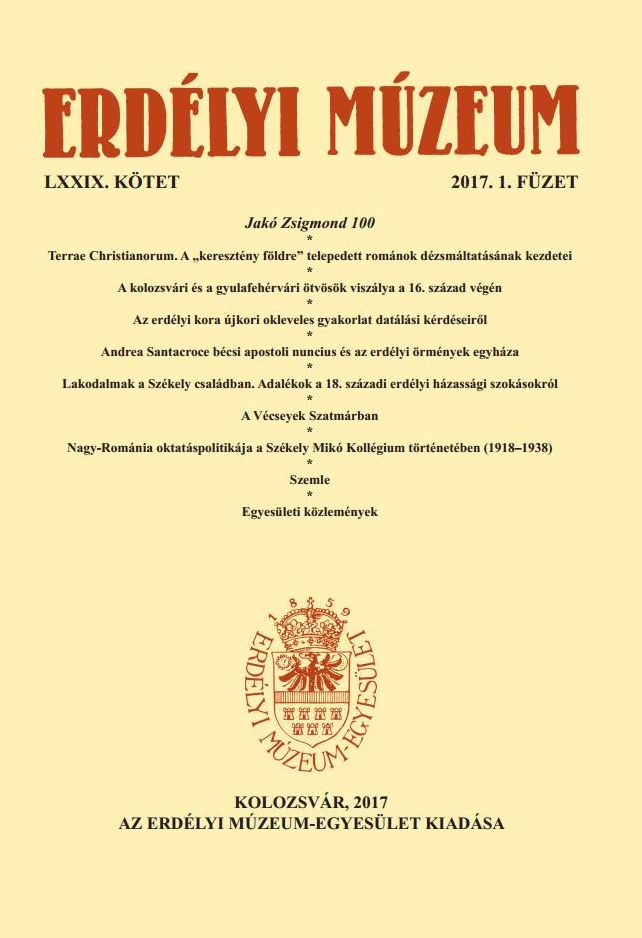Terrae Christianorum. A „keresztény földre” telepedett románok dézsmáltatásának kezdete
The Beginnings of Tithing among the Romanians Moved to „Terrae Christianorum” in Transylvania
Author(s): Géza HegyiSubject(s): Middle Ages
Published by: Erdélyi Múzeum-Egyesület
Keywords: tithing; „Terrae Christianorum”; Transylvania; Romanians
Summary/Abstract: According to the scholarly literature, the Romanians from Transylvania, followers predominantly of the Orthodox rite, did not pay tithe to the Western Church in the 13th–14th centuries. However, it is considered that two groups of them – those living on church properties and those who had moved on settlements formerly inhabited by Catholics (terrae Christianorum) – were obliged to pay this tax starting from the 1400s. This study deals with the first legal regulation regarding the second group, analyzing a document dated to 22th March of 1408 (unpublished till now), that has been preserved both as a summary in a command letter of King Vladislaus II of Hungary from 1492 and as a transcription in a truncated privilege of the same king that can be dated to the same year. The document in question contains the verdict of the royal treasurer, Pipo of Ozora and of the two voivodes of Transylvania, Jacob Lack and John Tamási, taken on the general assembly in Turda at the request of bishop Stephen Upori of Transylvania, who complained that the schismatic Romanian people settled in terrae Christianorum had been refusing to pay tithe to the Catholic Church, supported by some nobles, too. The author analyzes the background of this conflict of interest and shows why its regulation remained valid only for the counties from Transylvania.
Journal: Erdélyi Múzeum
- Issue Year: LXXIX/2017
- Issue No: 1
- Page Range: 61-75
- Page Count: 15
- Language: Hungarian

